![Parker, Evan / Derek Bailey / Han Bennink: The Topography of the Lungs [VINYL] (Otoroku) Parker, Evan / Derek Bailey / Han Bennink: The Topography of the Lungs [VINYL] (Otoroku)](https://www.teuthida.com/productImages/misc4/20140.jpg)
2018 Reissue: A much-needed vinyl reissue of the seminal London & European Free Improv trio release from 1970, an amazing album showing the relationships between established jazz forms and the emerging modern language.
Out of Stock
Quantity in Basket: None
Log In to use our Wish List
Shipping Weight: 24.00 units
Sample The Album:
Evan Parker-saxophones
Derek Bailey-guitar
Han Bennink-percussion
Click an artist name above to see in-stock items for that artist.
UPC: 769791954953
Label: Otoroku
Catalog ID: ROKURE 001LP
Squidco Product Code: 20140
Format: LP
Condition: New
Released: 2023
Country: Great Britain
Packaging: Vinyl LP
Recorded in London, 13th July 1970. Liner notes written in 1970 and August 2014 by Evan Parker.
Originally released in 1970-with catalogue number Incus 1, thus launching Evan Parker, Derek Bailey & Tony Oxley's famous label-this is a long awaited and historic reissue. When Parker and Bailey went their separate ways in 1987, Parker took his Incus recordings and other archived material with him. Since the advent of psi, most of his Incus recordings have been re-released there, with others mooted (Circadian Rhythm?).
However, there was a long-standing agreement between Parker and Bailey-at the latter's request-that this recording would not be released as long as Bailey remained a director of Incus, which he did until his death last December. Fittingly (and touchingly, given the Bailey-Parker rift), this release bears the dedication, "In memoriam Derek Bailey 1930-2005."
[...]
The original master takes of the album are now lost, so this CD has been remastered from the best LP version available (a virgin Japanese pressing, not surprisingly). But fear not, the sound is high quality throughout. Two previously unissued pieces have been added to the original material, and while it is nice to hear them, they provide no great insights beyond the original LP.
The 21-minute "Titan Moon (which occupied the whole of side one of the LP release) immediately sets the scene. Although free improvisation was at least five years old by the time this album was recorded, the trio's playing still shows clearly discernible links to free jazz. It is already a long way forward from, say, Joseph Holbrooke or even early SME, but still light years away from Company with its deliberate avoidance of jazz vocabulary and syntax. In 1970, free jazz and free improv were still joined by an isthmus, albeit one that was rapidly being eroded.
"Titan Moon would fox many a listener in a blindfold test: Parker's playing clearly shows a debt to Coltrane; crucially, Han Bennink's remorseless drive gives the music an irresistible pulse and a sense of boundless energy and forward momentum; maybe most surprising, Bailey's guitar is in transition from a traditional (mainly supportive) role within the trio to something more iconoclastic.
Both For Peter B and Peter K (the title acknowledging the vital influence of the Berlin scene) and "Fixed Elsewhere are similarly transitional. Again, Bennink propels them along with typical verve-but with few traces of his lovable eccentricity. Only on "Dogmeat, which closed the original album, are there clear signs of future developments into improv as it would become. The three players seem to have no model of how the piece will develop-it is shaped by their reactions to each other and consequently it is ever-changing in its focus, its tempo and its energy levels. Tellingly, Bailey's profile is higher here than in the preceding pieces.
The original master takes of the album are now lost, so this [LP] has been remastered from the best LP version available (a virgin Japanese pressing, not surprisingly). But fear not, the sound is high quality throughout. [...]
"-John EylesArtist Biographies
• Show Bio for Evan Parker "Evan Parker was born in Bristol in 1944 and began to play the saxophone at the age of 14. Initially he played alto and was an admirer of Paul Desmond; by 1960 he had switched to tenor and soprano, following the example of John Coltrane, a major influence who, he would later say, determined "my choice of everything". In 1962 he went to Birmingham University to study botany but a trip to New York, where he heard the Cecil Taylor trio (with Jimmy Lyons and Sunny Murray), prompted a change of mind. What he heard was "music of a strength and intensity to mark me for life ... l came back with my academic ambitions in tatters and a desperate dream of a life playing that kind of music - 'free jazz' they called it then." Parker stayed in Birmingham for a time, often playing with pianist Howard Riley. In 1966 he moved to London, became a frequent visitor to the Little Theatre Club, centre of the city's emerging free jazz scene, and was soon invited by drummer John Stevens to join the innovative Spontaneous Music Ensemble which was experimenting with new kinds of group improvisation. Parker's first issued recording was SME's 1968 Karyobin, with a line-up of Parker, Stevens, Derek Bailey, Dave Holland and Kenny Wheeler. Parker remained in SME through various fluctuating line-ups - at one point it comprised a duo of Stevens and himself - but the late 1960s also saw him involved in a number of other fruitful associations. He began a long-standing partnership with guitarist Bailey, with whom he formed the Music Improvisation Company and, in 1970, co-founded Incus Records. (Tony Oxley, in whose sextet Parker was then playing, was a third co-founder; Parker left Incus in the mid-1980s.) Another important connection was with the bassist Peter Kowald who introduced Parker to the German free jazz scene. This led to him playing on Peter Brötzmann's 1968 Machine Gun, Manfred Schoof's 1969 European Echoes and, in 1970, joining pianist Alex von Schlippenbach and percussionist Paul Lovens in the former's trio, of which he is still a member: their recordings include Pakistani Pomade, Three Nails Left, Detto Fra Di Noi, Elf Bagatellen and Physics. Parker pursued other European links, too, playing in the Pierre Favre Quartet (with Kowald and Swiss pianist Irene Schweizer) and in the Dutch Instant Composers Pool of Misha Mengelberg and Han Bennink. The different approaches to free jazz he encountered proved both a challenging and a rewarding experience. He later recalled that the German musicians favoured a "robust, energy-based thing, not to do with delicacy or detailed listening but to do with a kind of spirit-raising, a shamanistic intensity. And l had to find a way of surviving in the heat of that atmosphere ... But after a while those contexts became more interchangeable and more people were involved in the interactions, so all kinds of hybrid musics came out, all kinds of combinations of styles." A vital catalyst for these interactions were the large ensembles in which Parker participated in the 1970s: Schlippenbach's Globe Unity Orchestra, Chris McGregor's Brotherhood of Breath, Barry Guy's London Jazz Composers Orchestra (LJCO) and occasional big bands led by Kenny Wheeler. In the late 70s Parker also worked for a time in Wheeler's small group, recording Around Six and, in 1980, he formed his own trio with Guy and LJCO percussionist Paul Lytton (with whom he had already been working in a duo for nearly a decade). This group, together with the Schlippenbach trio, remains one of Parker's top musical priorities: their recordings include Tracks, Atlanta, Imaginary Values, Breaths and Heartbeats, The Redwood Sessions and At the Vortex. In 1980, Parker directed an Improvisers Symposium in Pisa and, in 1981, he organised a special project at London's Actual Festival. By the end of the 1980s he had played in most European countries and had made various tours to the USA, Canada, Australia, New Zealand and Japan. ln 1990, following the death of Chris McGregor, he was instrumental in organising various tributes to the pianist and his fellow Blue Notes; these included two discs by the Dedication Orchestra, Spirits Rejoice and lxesa. Though he has worked extensively in both large and small ensembles, Parker is perhaps best known for his solo soprano saxophone music, a singular body of work that in recent years has centred around his continuing exploration of techniques such as circular breathing, split tonguing, overblowing, multiphonics and cross-pattern fingering. These are technical devices, yet Parker's use of them is, he says, less analytical than intuitive; he has likened performing his solo work to entering a kind of trance-state. The resulting music is certainly hypnotic, an uninterrupted flow of snaky, densely-textured sound that Parker has described as "the illusion of polyphony". Many listeners have indeed found it hard to credit that one man can create such intricate, complex music in real time. Parker's first solo recordings, made in 1974, were reissued on the Saxophone Solos CD in 1995; more recent examples are Conic Sections and Process and Reality, on the latter of which he does, for the first time, experiment with multi-tracking. Heard alone on stage, few would disagree with writer Steve Lake that "There is, still, nothing else in music - jazz or otherwise - that remotely resembles an Evan Parker solo concert." While free improvisation has been Parker's main area of activity over the last three decades, he has also found time for other musical pursuits: he has played in 'popular' contexts with Annette Peacock, Scott Walker and the Charlie Watts big band; he has performed notated pieces by Gavin Bryars, Michael Nyman and Frederic Rzewski; he has written knowledgeably about various ethnic musics in Resonance magazine. A relatively new field of interest for Parker is improvising with live electronics, a dialogue he first documented on the 1990 Hall of Mirrors CD with Walter Prati. Later experiments with electronics in the context of larger ensembles have included the Synergetics - Phonomanie III project at Ullrichsberg in 1993 and concerts by the new EP2 (Evan Parker Electronic Project) in Berlin, Nancy and at the 1995 Stockholm Electronic Music Festival where Parker's regular trio improvised with real-time electronics processed by Prati, Marco Vecchi and Phillip Wachsmann. "Each of the acoustic instrumentalists has an electronic 'shadow' who tracks him and feeds a modified version of his output back to the real-time flow of the music." The late 80s and 90s brought Parker the chance to play with some of his early heroes. He worked with Cecil Taylor in small and large groups, played with Coltrane percussionist Rashied Ali, recorded with Paul Bley: he also played a solo set as support to Ornette Coleman when Skies of America received its UK premiere in 1988. The same period found Parker renewing his acquaintance with American colleagues such as Anthony Braxton, Steve Lacy and George Lewis, with all of whom he had played in the 1970s (often in the context of London's Company festivals). His 1993 duo concert with Braxton moved John Fordham in The Guardian to raptures over "saxophone improvisation of an intensity, virtuosity, drama and balance to tax the memory for comparison". Parker's 50th birthday in 1994 brought celebratory concerts in several cities, including London, New York and Chicago. The London performance, featuring the Parker and Schlippenbach trios, was issued on a highly-acclaimed two-CD set, while participants at the American concerts included various old friends as well as more recent collaborators in Borah Bergman and Joe Lovano. The NYC radio station WKCR marked the occasion by playing five days of Parker recordings. 1994 also saw the publication of the Evan Parker Discography, compiled by ltalian writer Francesco Martinelli, plus chapters on Parker in books on contemporary musics by John Corbett and Graham Lock. Parker's future plans involve exploring further possibilities in electronics and the development of his solo music. They also depend to a large degree on continuity of the trios, of the large ensembles, of his more occasional yet still long-standing associations with that pool of musicians to whose work he remains attracted. This attraction, he explained to Coda's Laurence Svirchev, is attributable to "the personal quality of an individual voice". The players to whom he is drawn "have a language which is coherent, that is, you know who the participants are. At the same time, their language is flexible enough that they can make sense of playing with each other ... l like people who can do that, who have an intensity of purpose." " ^ Hide Bio for Evan Parker • Show Bio for Derek Bailey "Derek Bailey (29 January 1930 - 25 December 2005) was an English avant-garde guitarist and leading figure in the free improvisation movement. Bailey was born in Sheffield, England. A third-generation musician, he began playing the guitar at the age of ten, initially studying music with his teacher and Sheffield City organist C. H. C. Biltcliffe, an experience that he did not enjoy, and guitar with his uncle George Wing and John Duarte. As an adult he worked as a guitarist and session musician in clubs, radio, dance hall bands, and so on, playing with many performers including Morecambe and Wise, Gracie Fields, Bob Monkhouse and Kathy Kirby, and on television programs such as Opportunity Knocks. Bailey's earliest foray into 'what could be called free improvised music' was in 1953 with two other guitarists in their shared flat in Glasgow. He was also part of a Sheffield-based trio founded in 1963 with Tony Oxley and Gavin Bryars called "Joseph Holbrooke" (named after the composer, whose work they never actually played). Although originally performing relatively "conventional" modal, harmonic jazz this group became increasingly free in direction. Bailey moved to London in 1966, frequenting the Little Theatre Club run by drummer John Stevens. Here he met many other like-minded musicians, such as saxophonist Evan Parker, trumpet player Kenny Wheeler and double bass player Dave Holland. These players often collaborated under the umbrella name of the Spontaneous Music Ensemble, recording the seminal album Karyobin for Island Records in 1968. In this year Bailey also formed the Music Improvisation Company with Parker, percussionist Jamie Muir and Hugh Davies on homemade electronics, a project that continued until 1971. He was also a member of the Jazz Composer's Orchestra and Iskra 1903, a trio with double-bass player Barry Guy and tromboneist Paul Rutherford that was named after a newspaper published by the Russian revolutionary Vladimir Lenin. In 1970, Bailey founded the record label Incus with Tony Oxley, Evan Parker and Michael Walters. It proved influential as the first musician-owned independent label in the UK. Oxley and Walters left early on; Parker and Bailey continued as co-directors until the mid-1980s, when friction between the men led to Parker's departure. Bailey continued the label with his partner Karen Brookman until his death in 2005[citation needed]. Along with a number of other musicians, Bailey was a co-founder of Musics magazine in 1975. This was described as "an impromental experivisation arts magazine" and circulated through a network of like-minded record shops, arguably becoming one of the most significant jazz publications of the second half of the 1970s, and instrumental in the foundation of the London Musicians Collective. 1976 saw Bailey instigate Company, an ever-changing collection of like-minded improvisors, which at various times has included Anthony Braxton, Tristan Honsinger, Misha Mengelberg, Lol Coxhill, Fred Frith, Steve Beresford, Steve Lacy, Johnny Dyani, Leo Smith, Han Bennink, Eugene Chadbourne, Henry Kaiser, John Zorn, Buckethead and many others. Company Week, an annual week-long free improvisational festival organised by Bailey, ran until 1994. In 1980, he wrote the book Improvisation: Its Nature and Practice. This was adapted by UK's Channel 4 into a four-part TV series in the early '90s, edited and narrated by Bailey. Bailey died in London on Christmas Day, 2005. He had been suffering from motor neurone disease." ^ Hide Bio for Derek Bailey • Show Bio for Han Bennink "Drummer and multi-instrumentalist Han Bennink was born in Zaandam near Amsterdam in 1942. His first percussion instrument was a kitchen chair. Later his father, an orchestra percussionist, supplied him with a more conventional outfit, but Han never lost his taste for coaxing sounds from unlikely objects he finds backstage at concerts. He is still very fond of playing chairs. In Holland in the 1960s, Bennink was quickly recognized as an uncommonly versatile drummer. As a hard swinger in the tradition of his hero Kenny Clarke, he accompanied touring American jazz stars, including Sonny Rollins, Ben Webster, Wes Montgomery, Johnny Griffin, Eric Dolphy and Dexter Gordon. He is heard with Gordon on the 1969 album "Live at Amsterdam Paradiso" (on the Affinity label) and with Dolphy on 1964s "Last Date" (PolyGram). At the same time, Bennink participated in the creation of a European improvised music which began to evolve a new identity, apart from its jazz roots. With fellow Dutch pioneers, pianist Misha Mengelberg and saxophonist Willem Breuker, he founded the musicians collective Instant Composers Pool in 1967. Bennink anchored various bands led by Mengelberg or Breuker, and appeared in their comic music-theater productions. Bennink attended art school in the 1960s, and is also a successful visual artist in several media, often constructing sculpture from found objects, which may include broken drum heads and sticks. He has designed the covers for many LPs and CDs on which he appears. Bennink is represented by Amsterdam's Galerie Espace, and has been the subject of several one-man shows, including one at the Gemeente Museum in the Hague in 1995. In 1966, Bennink played the US's Newport Jazz Festival with the Mengelberg quartet. From the late 1960s through the '70s Bennink collaborated frequently with Danish, German, English and Belgian musicians, notably saxophonists John Tchicai and Peter Broetzmann, guitarist Derek Bailey and pianist Fred van Hove. Bennink, Broetzmann and van Hove had a longstanding trio well documented on FMP Records. There Bennink also showcased his talents on clarinet, trombone, soprano saxophone and many other instruments, also featured in a series of solo albums he began in 1971. Bennink's many recordings from the 1980s include sessions with Mengelberg's ICP Orchestra (where he remains), South African bassist Harry Miller, soprano saxophonist Steve Lacy, trombonists Roswell Rudd and George Lewis, and big-bandleaders Sean Bergin and Andy Sheppard. From 1988 to'98 Bennink's main vehicle was Clusone 3, with saxophonist and clarinetist Michael Moore and cellist Ernst Reijseger, a band noted for its free-wheeling mix of swinging jazz standards, wide-open improvising, and tender ballads. Clusone played Europe and North America, West Africa, China, Vietnam and Australia, and recorded five CDs for Gramavision, hat Art and Ramboy. Nowadays he is frequently heard with tenor saxophonist Tobias Delius's quartet and in a trio with pianist/keyboardist Cor Fuhler and bassist Wilbert de Joode, and he still collaborates occasionally with jazz luminaries such as Johnny Griffin, Von Freeman and Ray Anderson. A conspicuous feature of Bennink's musical life since the 1960s is the spontaneous duo concert with musicians of many nationalities and musical inclinations; in the '90s he recorded in duo with among others pianists Mengelberg, Irene Schweizer and Myra Melford, guitarist Eugene Chadbourne, trumpeter Dave Douglas and tenor saxophonist Ellery Eskelin. Since 2008 Han Bennink has his own Han Bennink Trio consisting of Han Bennink, Joachim Badenhorst on clarinet and Simon Toldam on piano." ^ Hide Bio for Han Bennink
4/9/2025
Have a better biography or biography source? Please Contact Us so that we can update this biography.
4/9/2025
Have a better biography or biography source? Please Contact Us so that we can update this biography.
4/9/2025
Have a better biography or biography source? Please Contact Us so that we can update this biography.
Track Listing:
Side A
1. Titan Moon
Side B
1. For Peter B. & Peter K.
2. Fixed Elsewhere
3. Dogmeat
Vinyl Recordings
Improvised Music
Free Improvisation
London & UK Improv & Related Scenes
Parker, Evan
Bailey, Derek
Staff Picks & Recommended Items
Top Sellers for 2018 by Customer Sales
New in Improvised Music
Search for other titles on the label:
Otoroku.


![Parker, Evan / Derek Bailey / Han Bennink: The Topography of the Lungs [VINYL] (Otoroku) Parker, Evan / Derek Bailey / Han Bennink: The Topography of the Lungs [VINYL] (Otoroku)](https://www.teuthida.com/productImages/full/20140.Full.jpg)
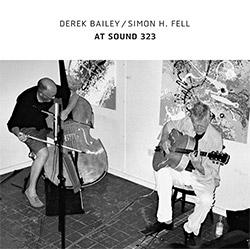

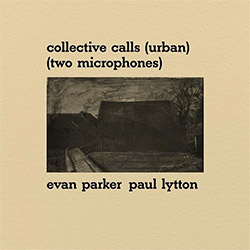
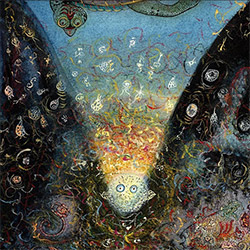



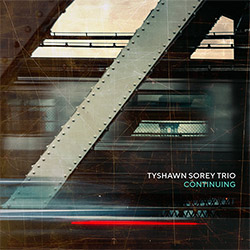
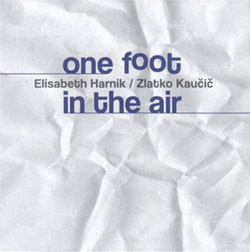
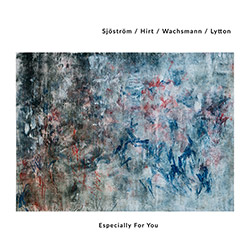
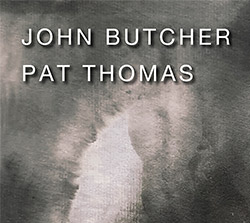
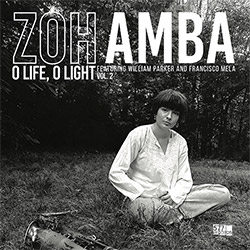
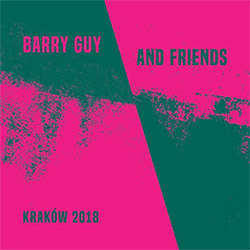
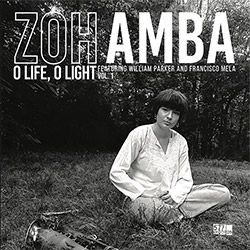
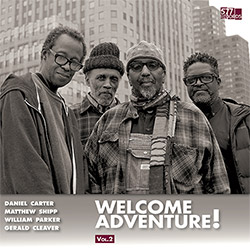
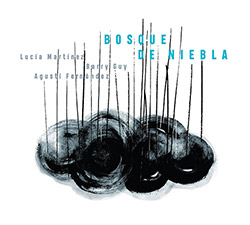
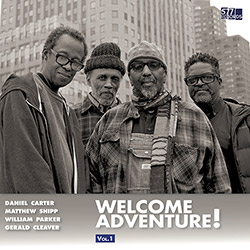

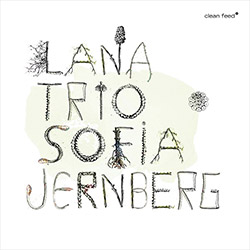
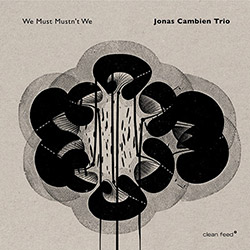


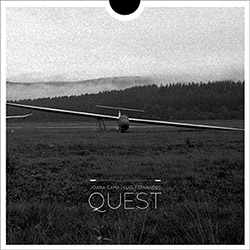


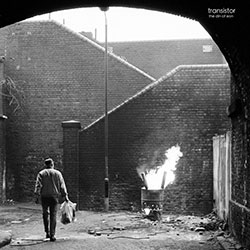



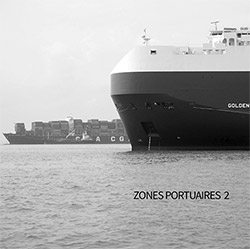
![111 (Michelle / Villamil): Live at Opus 40 [CASSETTE]](https://www.teuthida.com/productImages/misc4/35986.jpg)
![del Pino, Francisco / Charlotte Mundy: The Sea [CASSETTE]](https://www.teuthida.com/productImages/misc4/35987.jpg)

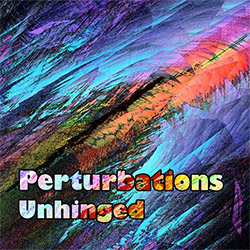

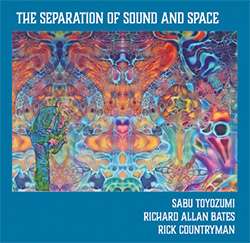


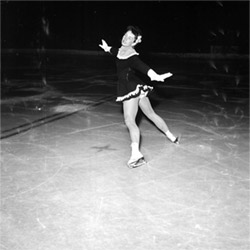
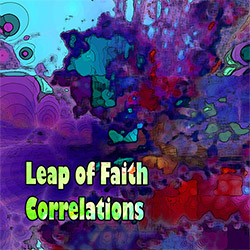

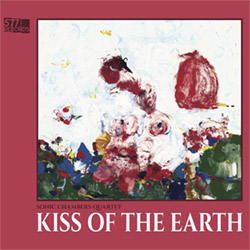

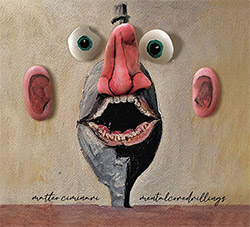
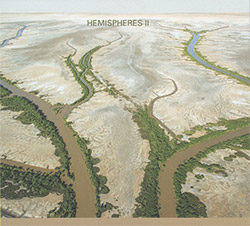
![Niblock, Phill / Anna Clementi / Thomas Stern: Zound Delta 2 [VINYL]](https://www.teuthida.com/productImages/misc4/34623.jpg)
![Yoko, Ono / The Great Learning Orchestra: Selected Recordings From Grapefruit [2 CDs]](https://www.teuthida.com/productImages/misc4/35841.jpg)

![Brotzmann, Peter / John Edwards / Steve Noble / Jason Adasiewicz: The Quartet [2 CDs]](https://www.teuthida.com/productImages/misc4/35975.jpg)
![Brotzmann, Peter / John Edwards / Steve Noble / Jason Adasiewicz: The Quartet [VINYL 2 LPs]](https://www.teuthida.com/productImages/misc4/35976.jpg)
![Thomas, Pat: The Solar Model of Ibn-Al Shatir [VINYL]](https://www.teuthida.com/productImages/misc4/36044.jpg)
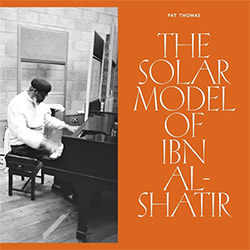



![Rodrigues, Ernesto / Nuno Torres / Guilherme Rodrigues: Whispers In The Moonlight - In Seven Movements [2CDs]](https://www.teuthida.com/productImages/misc4/35765.jpg)



![Cocks, Laura: FATHM [VINYL]](https://www.teuthida.com/productImages/misc4/36055.jpg)













![Schindler, Udo / Sandy Ewen / Damon Smith: Munich Sound Studies Vols. 4, 5 & 6 [3 CDs]](https://www.teuthida.com/productImages/misc4/35966.jpg)
![Turbulence Orchestra & Sub-Units: Smear Out the Difficulties (Double Live) [2 CDs]](https://www.teuthida.com/productImages/misc4/36048.jpg)

![Myers, David Lee : Tin Drop Tear [BOOK w/ DOWNLOAD]](https://www.teuthida.com/productImages/misc4/36030.jpg)

![Ackerley / Prymek / Turner: All Hope With Sleeping Minds [CASSETTE]](https://www.teuthida.com/productImages/misc4/35950.jpg)








![Olencki, Weston : Pearls Ground Down To Powder [VINYL]](https://www.teuthida.com/productImages/misc4/35956.jpg)
![Myers, David Lee: Oculus [2CDs]](https://www.teuthida.com/productImages/misc4/35857.jpg)


![dustsceawung: dustsceawung [CASSETTE w/ Download]](https://www.teuthida.com/productImages/misc4/35753.jpg)




![Halls of the Machine: Atmospheres For Lovers And Sleepers [CASSETTE w/ DOWNLOAD]](https://www.teuthida.com/productImages/misc4/35806.jpg)











![Zorn, John / JACK Quartet: The Complete String Quartets [2 CDs]](https://www.teuthida.com/productImages/misc4/35609.jpg)

![Lonsdale, Eden: Dawnings [2 CDs]](https://www.teuthida.com/productImages/misc4/35480.jpg)







![Sanna, Claudio: Compositori Sardi Contemporanei II [2 CDs]](https://www.teuthida.com/productImages/misc4/35317.jpg)







![Zurria, Manuel: Fame di Vento [3 CDs]](https://www.teuthida.com/productImages/misc4/35167.jpg)

![Electric Bird Noise / Derek Roddy: 8-10-22 [CD EP]](https://www.teuthida.com/productImages/misc4/35970.jpg)








![Elephant9 : Mythical River [VINYL]](https://www.teuthida.com/productImages/misc4/34624.jpg)



![Elephant9 with Terje Rypdal: Catching Fire [VINYL 2 LPs]](https://www.teuthida.com/productImages/misc4/35355.jpg)
![Deerlady (Obomsawin, Mali / Magdalena Abrego): Greatest Hits [VINYL]](https://www.teuthida.com/productImages/misc4/34876.jpg)







![Surplus 1980: Illusion of Consistency [CD]](https://www.teuthida.com/productImages/misc4/35069.jpg)
![Staiano, Moe: Away Towards the Light [VINYL + DOWNLOAD]](https://www.teuthida.com/productImages/misc4/35037.jpg)



![Caveira (Gomes / Sousa / Abras / Ferrandini): Ficar Vivo [VINYL]](https://www.teuthida.com/productImages/misc4/34643.jpg)
![Coley, Byron: Dating Tips for Touring Bands [VINYL]](https://www.teuthida.com/productImages/misc4/17906.jpg)

![Lost Kisses: My Life is Sad & Funny [DVD]](https://www.teuthida.com/productImages/misc4/lostKissesDVD.jpg)